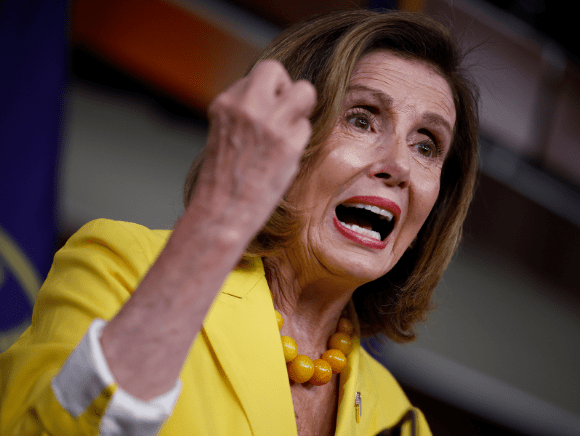
The Inflation Reduction Act has cleared the House after a party-line vote Friday evening. The social spending bill made it through the Senate reconciliation process Sunday, and now all that remains is President Joe Biden’s signature. That he will sign is a foregone conclusion; this may not be Build Back Better in all its progressive glory, but for Biden, it’s the next best thing.
Inflation Reduction Act
Democrats are hyping the green spending and tax bill as “the biggest clean energy package in US history.” A whopping $369 billion of the $437 billion in spending goes toward building up the domestic manufacturing of electric vehicles and so-called clean energy technologies. Another $4 billion is slated for promoting drought resiliency in the western part of the country. The remaining $64 billion goes to expanding the Affordable Care Act by funding free vaccines, subsidizing private insurance premiums and the cost of insulin and other out-of-pocket prescription expenses.
 How can we pay for this in the current economic climate? Democrats also claim the bill cuts the deficit by more than $300 billion and raises an additional $737 billion in revenue, all without touching the income of any household earning less than $400,000 a year. A new 15% corporate minimum tax is expected to raise $222 billion. Of course, an increase in corporate taxes simply means higher prices for consumers – which is to say, we’ll all pay that tax.
How can we pay for this in the current economic climate? Democrats also claim the bill cuts the deficit by more than $300 billion and raises an additional $737 billion in revenue, all without touching the income of any household earning less than $400,000 a year. A new 15% corporate minimum tax is expected to raise $222 billion. Of course, an increase in corporate taxes simply means higher prices for consumers – which is to say, we’ll all pay that tax.
The IRS receives another $124 billion – though White House Press Secretary Karine Jean-Pierre assures us no one making less than $400,000 will bear additional scrutiny. Of course, there’s no such safeguard explicitly in the bill. Senate Democrats voted unanimously to kill the amendment that would have added such language. Moreover, despite Senate Majority Leader Chuck Schumer’s (D-NY) August 8 claim that “The law includes a stipulation ensuring that additional tax enforcement should not be targeted at individuals earning $400,000 or less,” the final bill passed by the Senate on August 7 doesn’t mention incomes of $400,000 or lower at all. Yes, sometime between rallying enough Democrats to push through a reconciliation package and the actual vote, the only protection for middle-class earners was quietly cut.
Partisan Politics
After much back and forth amongst each other – and more than a little help from the Senate parliamentarian – Democrats and the two Independents who caucus with them voted unanimously to force a massive socialist spending bill through, escaping the normal 60-vote requirement by using the now greatly expanded budget reconciliation process. Not a single Republican supported the effort, and none were needed. The vote in the House went precisely as expected. All 219 Democrats said “yea,” every voting Republican – there were three who didn’t vote at all – said “nay.”
 The only reason this – or, rather, the original version of Build Back Better – hasn’t been law for a year and a half already is that Sens. Joe Manchin (D-WV) and Kyrsten Sinema (D-AZ) held up the process. Neither was willing to completely silence the voice of the GOP by ending the filibuster or supporting the use of reconciliation as a way around bipartisan efforts. Both had their own separate issues with the deal that were more economic in nature, but those could be – and were – negotiated around. It was their reluctance to legislate through the power of a false majority that has, up until very recently, prevented the most radical of leftist bills – completely unhindered by any need to appease the other side – from becoming law.
The only reason this – or, rather, the original version of Build Back Better – hasn’t been law for a year and a half already is that Sens. Joe Manchin (D-WV) and Kyrsten Sinema (D-AZ) held up the process. Neither was willing to completely silence the voice of the GOP by ending the filibuster or supporting the use of reconciliation as a way around bipartisan efforts. Both had their own separate issues with the deal that were more economic in nature, but those could be – and were – negotiated around. It was their reluctance to legislate through the power of a false majority that has, up until very recently, prevented the most radical of leftist bills – completely unhindered by any need to appease the other side – from becoming law.
It’s unclear, at this pointy, whether the bill’s passage in the Senate was an isolated incident or if the days of the filibuster are numbered. As for the House, so long as Democrats retain that majority, vote outcomes will remain utterly predictable. But whatever legislation the future may bring from the left, the Inflation Reduction Act will soon be the law of the land.
Check out Whatfinger.com, the #1 Alternative to the Drudge


